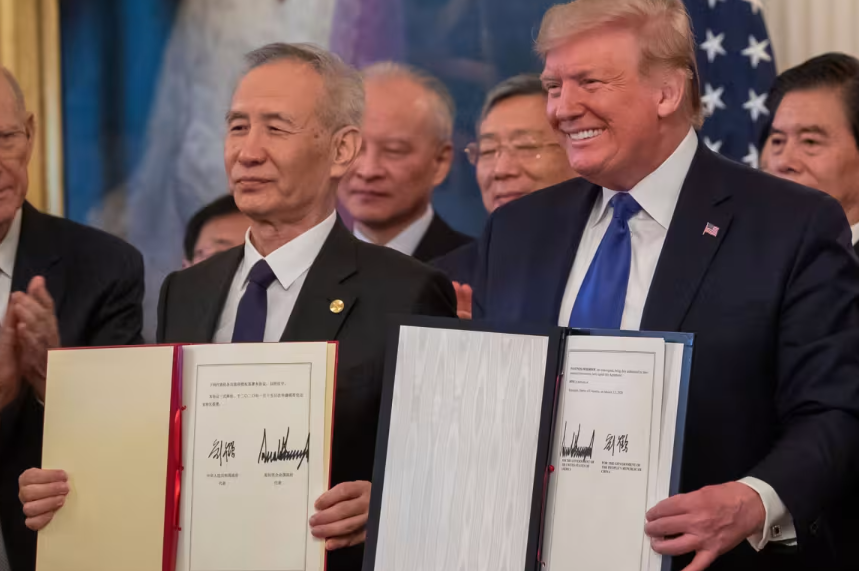Tags
Trump Administration Holds China Accountable to Phase One Deal

WASHINGTON DC – Earlier today, the Office of the U.S. Trade Representative (USTR) announced the launch of a Section 301 investigation into China’s compliance with the U.S.-China Phase One Economic and Trade Agreement (Phase One Agreement) achieved and signed by the first Trump Administration in January 2020 (see USA Rice Daily, January 15, 2020). Section 301 of the U.S. Trade Act of 1974 authorizes USTR to investigate and respond to unfair trade policies, acts, and practices by foreign governments that harm U.S. commerce. It has become a key trade enforcement tool employed by the Trump Administration to unilaterally hold trading partners accountable.
At the time, China agreed to purchase $80 billion of U.S. food, agricultural, and seafood products, including rice, over the following two years. Notably for rice, China also agreed to comply with two separate World Trade Organization (WTO) disputes with changes to their tariff rate quotas and excess subsidies. China also agreed to adjust both their rice phytosanitary protocol and national standards for rice, re-classifying U.S. medium grain from long grain.
Unfortunately, nearly five years after the signing, China continues to fall short of its commitments including to come into compliance with the two WTO disputes. Despite China’s formal approval of several U.S. facilities under its phytosanitary protocol, the protocol is more onerous and complicated than any other rice protocol in the world and has resulted in less than 100 metric tons of U.S. rice shipped to China.
“After more than two decades since China’s accession to the WTO, numerous market access negotiations, and the hopeful Phase One Agreement, U.S. rice exporters have delivered only three small commercial shipments to China’s 6.16 million-metric-ton (MMT) import market,” said Karah Janevicius, USA Rice director of international trade. “While the U.S. rice industry was hopeful the Phase One Agreement would facilitate trade, the reality for our farmers and exporters is quite grim. The fact that the Chinese government has not taken steps towards U.S. rice purchases and imports sends a signal to the trade that U.S. rice is not welcome.”
China’s continued high levels of domestic support for rice producers is a major factor in its steady growth of rice exports – a substantial 1.1 MMT in 2024 – and transforming China into a global export competitor. Over the past five years, Chinese rice exports to Puerto Rico have increased exponentially. This rice entering the U.S. domestic market at artificially low prices adds another layer of import competition for domestic producers. These imports into Puerto Rico have essentially displaced all of the U.S. rice that formerly enjoyed 100 percent of Puerto Rican market share. With the imposition of President Trump’s reciprocal tariffs on Chinese goods earlier this year, Puerto Rico is now replacing cheap Chinese imports with South American rice and U.S. rice remains shut out of the market.
Given USDA’s initial estimates that U.S. rice exports to China could reach $300 million on an annual basis, the negative economic impact for our industry has been substantial,” said Janevicius. “We applaud President Trump and USTR Ambassador Jamieson Greer’s persistence to hold China accountable to its commitments using Section 301. We hope this is just the beginning of implementation of this useful U.S. enforcement tool to hold our trading partners accountable and level the playing field for our farmers to fairly compete.”
Published Date: October 24, 2025






